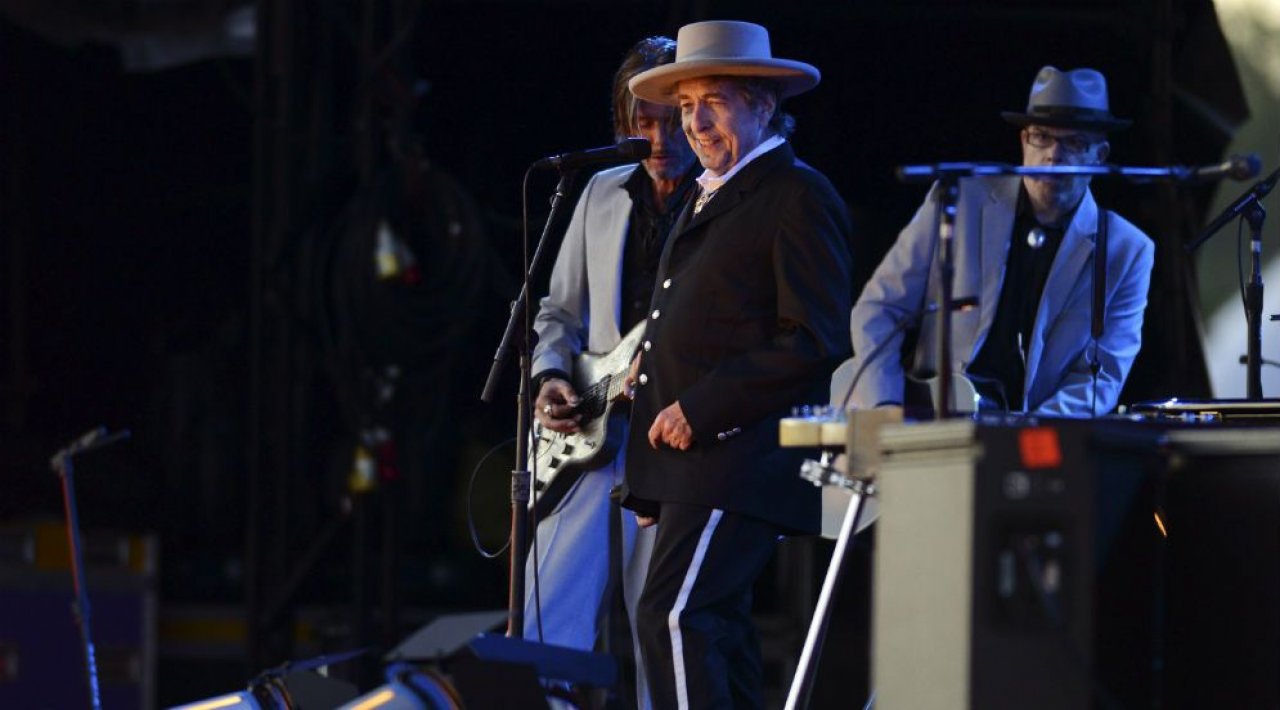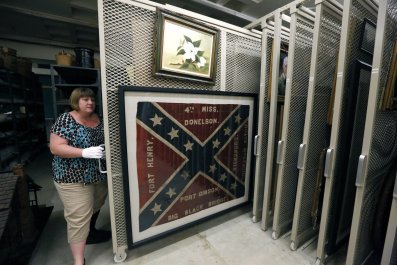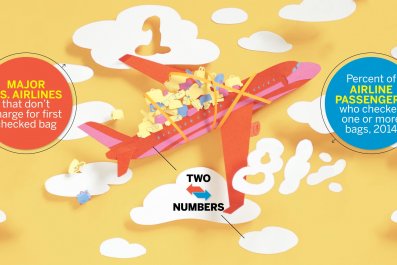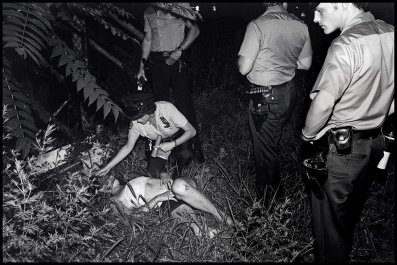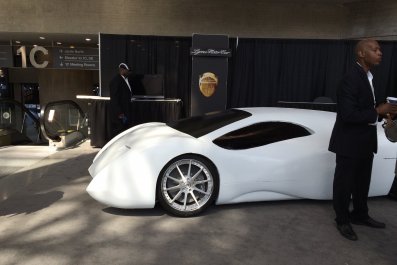I have a perverse theory. Having worked professionally with a few singers and studied many more, I've come to realize that singing well doesn't necessarily make one a good singer. In fact, the very opposite may be true. Skill can kill unless wielded with care. One must have the humility if not good taste to sometimes conceal one's mighty arsenal, lest the mystery evaporate and the skeleton of rote learning remain. After all, even a seal can spin a ball on its nose with enough training.
Christina Aguilera, for instance, has put in the hours teaching her larynx, lips and lungs to do cartwheels and throw off sparks, yet by the end of eight bars your ears are exhausted by all the jiggled pitches and showoff runs. As Carmen McRae once said of Billie Holiday, "Billie sang the note that meant the word."
Enter Bob Dylan, a man whose vocal talents have engendered decades of commentary and comedy. Every Barstool Barney does a sarcastic Dylan impression, over-amping the old nasally/whiney bit while coyote-howling a snatch of Idiot Wind or Hurricane. Then all assembled guffaw in agreement: "Bob cain't sing no better'n my Uncle Jeff."
I was pondering these weighty matters while watching David Letterman's penultimate show, in which Bill Murray provided the classy clowning and Dylan the straight-faced crooning of a classic, the occasion-appropriate The Night We Called It a Day. No, not exactly Bette Midler cooing into Johnny Carson's ear while he's holding back twinkly tears, but wan and wistful enough to see Dave off poignantly without too much Nostalgic Showbiz Overkill.
The Times They Are a-Changin' would have been way too spot-on a choice, and besides, Dylan has recently released an album of songs performed by Frank Sinatra, Shadows in the Night. Let's just say Dylan's appearance knocked off two birds—he got to hype his current work and Letterman got the indisputable King of Kings to grace his next to last show with a wry reading of an apt standard.
Now, as for trance medium Bob Dylan summoning the spirit of The Chairman without tarot cards or theremins, well, let's just say that he has boatloads of courage (chutzpah?) to sing a song that typically demands precise intonation, fluid phrasing and timbral consistency. Those are qualities Sinatra had plenty enough of to waste, and which Dylan has traditionally, even studiously, ignored.
Ignored or simply unable, that is the question much bandied about re: Dylan's approach to vocalizing. Herein lies my perversity: It is my devout contention that Bob Dylan was as capable a singer in his heyday (and in his appointed genre) as Sinatra was in his. Both, of course, started by doing mean impersonations of the going thing, in Dylan's case Woody Guthrie and in Sinatra's an amalgam of Bing Crosby and Billie Holiday, the former for his cotton-candy sound, the latter for her raw emotionality and storytelling gifts.
Listen to Talkin' New York from Dylan's first album and admire his astounding ear and rapid, sure-fire phrasing, delivered in a dialect lifted whole cloth from the Zimmerman family's distant country cousins down Alabama way. Dylan was no farm boy, but he was a sophisticated stylist with an incredible gift of mimicry. As T.S. Eliot said, "Immature poets imitate; mature poets steal," and Dylan was the wiliest felon in folk music back in 1962. He was doing Woody, like impersonator Rich Little did Lyndon Johnson or Bogie.
Had it stopped there, Dylan could be fairly lumped in with other misdemeanor pickpockets like Tom Waits or Leon Redbone, whose vocal personae never quite graduated from minstrelsy—in their case, trying desperately to sound like Louis Armstrong. Miles Davis said reverently of Pops, "You can't play anything on a horn that Louis hasn't played," and that went for his singing as well. Everybody did Louis, and still do to this day without even knowing it.
Now jump forward a mere three years to Dylan's Subterranean Homesick Blues and hear an approach to song and singing nobody'd quite heard before: a slapdash, attitudinal, all-knowing, caustic and, yes, postmodern style, the real Bob Dylan emerging from a cocoon of approaches before picking one out for his musical bar mitzvah—when a boy becomes a man, if you follow my metaphorical drift.
Just try to make fun of that Dylan, whose sense of swing is every bit as assured and relaxed as Sinatra's, if by that ineffable term one means avoiding the hammer-heavy fall of the metronomic beat into one's (hopefully more elastic) phrasing. You have to feel the beat rather than follow it, to imply its presence without giving in to its stern hegemony. Squares sing on the pulse, and swingers avoid it like it's an Applebee's.
And here too is a good opportunity to salute Dylan's ear for pitch, also maligned by cheap-shotters over the years. Like a great jazz wind or horn player, Dylan's sound is unmistakable because he chose his own tonality, hewing close to the microtonal pitches of spoken speech to achieve a specific expressive end. In that sense, he prefigured the Rap Revolution, where melody took a back seat to rat-a-tat elocution and the People's Diction.
In other words, to be given his proper due, Bob Dylan must be seen (and heard) as a fully conscious artist making canny choices about which rules to obey and which to ignore, as did revolutionaries like Stravinsky and Picasso and, yes, Frank Sinatra. Dylan didn't sing slightly out of true pitch by omission; it's that perfect intonation was contrary to his aesthetic purposes. His saddle-shoed contemporary Pat Boone was ostensibly singing "better" than Dylan in 1962, but put his Speedy Gonzales up against Dylan's Song to Woody and tell me which 45 rpm single winds up in the Smithsonian.
In a now-famous exchange with a button-downed Time magazine correspondent in 1965, Dylan declared brashly, "I'm just as good a singer as [Enrico] Caruso." Mind you, young Bob knew the Don't Look Back camera was rolling and was being difficult on purpose, but he meant every barbed word. "You have to listen closely," he added, "but I hit all those notes, and I can hold my breath three times as long if I wanted to."
A final diss by way of praise for Mr. Bob: If it's technical accuracy you embrace, stick with Michael Bublé, a bloodless Sinatra replicant who never punched out a mouthy drunk or flew to Mexico City for enchiladas at the drop of a fedora. Dylan doesn't sound as "good" as Mike Bubbles, and vive la différence. What he does have is the required world-weariness and tenderness to honor Frank's legacy. Sinatra and Dylan did do it their way, not someone else's, which is all one can ask of an artist worthy of the appellation.


